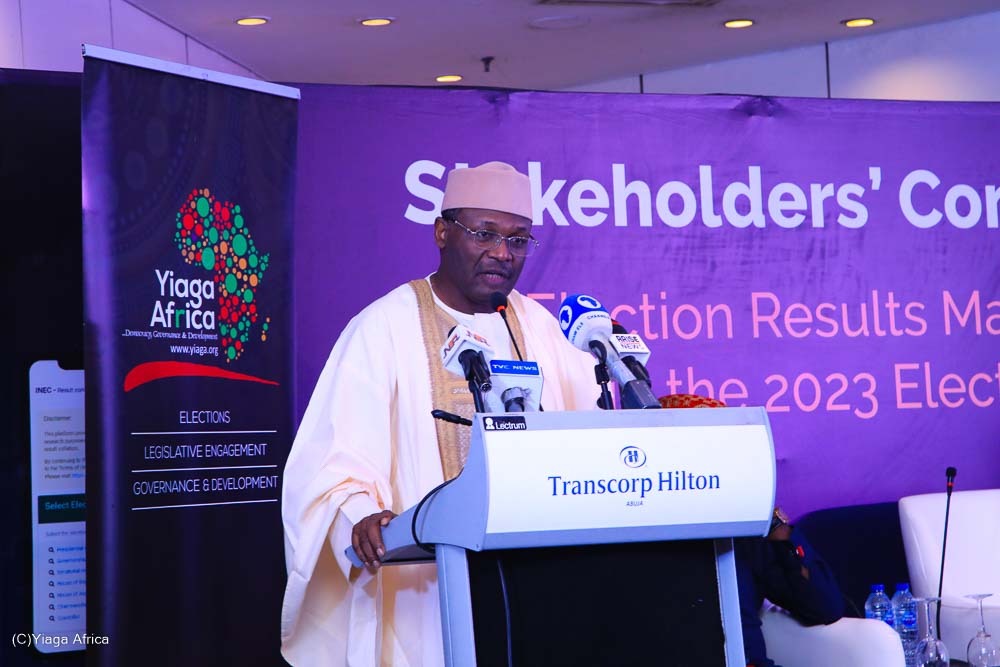The Chairman of the Independent National Electoral Commission (INEC), Prof. Mahmood Yakubu, has explained why the commission changes result sheets during elections.
Yakubu spoke in Abuja on Friday, at a Stakeholders’ Conference On Election Results Management and the Launch of the Election Result Analysis Dashboard (ERAD) of Yiaga Africa.
As part of measures to strengthen the 2023 elections, Yiaga Africa came up with the ERAD initiative.
Commenting on this, the INEC Chairman commended the Civil Society Organisation, saying INEC is ready to collaborate on making the project work.
He also spoke about how the dashboard helped to amplify INEC’s work during the last governorship election in Osun State.
“The visibility that ERAD gave to the INEC Result Viewing (IReV) portal has been momentous and it is deeply appreciated by INEC. I hope the Dashboard is sustained and INEC remains ready to work with you to improve on it.”
“Apart from voting, results management is easily the most critical aspect of election administration. Indeed, for most politicians, it is perhaps more important than voting… We constantly change result sheet colour because politicians like to produce their own result during election.”
Speaking further, he said: “The importance of IReV to transparency of result management is obvious. I call on all stakeholders to support the commission to continue to work to improve IReV. I can confidently say that the days of wanton manipulation of election results are over. Yet, the commission is not resting on its oars, knowing that it must remain several steps ahead of those who seek to undermine the system.
“In these elections, 33,275 Form EC8As were expected to be uploaded to the IReV for viewing. A total of 32,985 results were successfully uploaded, giving an upload success rate of 99.13%.”
“Since 2011, the commission has adopted a policy of measured application of technology for election management. Several principles have informed this policy, notably: suitability, simplicity, cost-effectiveness, timeliness, efficiency, security, knowledge transfer, and above all, transparency.
“Perhaps, the most critical technological tools introduced by the commission in recent times are the bimodal voter accreditation System (BVAS) and the INEC result viewing (IReV) portal. While the former is a device, the latter is a web portal. But they have worked together to strengthen result collation and tremendously increased public confidence in the quality of elections in Nigeria.”

 Join Daily Trust WhatsApp Community For Quick Access To News and Happenings Around You.
Join Daily Trust WhatsApp Community For Quick Access To News and Happenings Around You.


